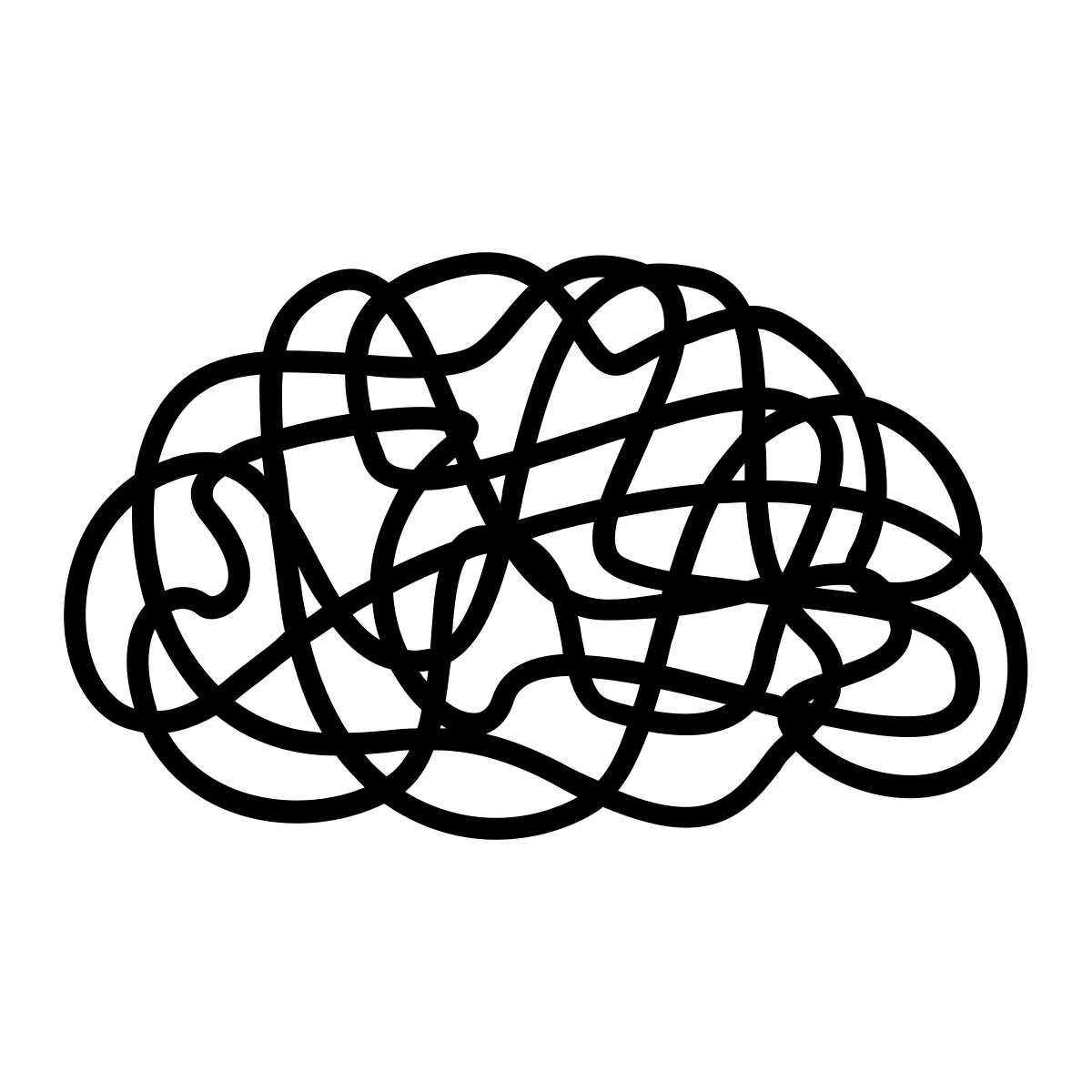
Welcome to the world of plant medicines and psychedelics.
⚡ This newsletter is for those who…
Keep hearing about psychedelics and plant medicine but have no idea what they’re used for.
Have never taken a psychedelic before and are curious about what they can help.
Are struggling with their mental health and are looking for alternative options.
Want a central place to get research, science-based protocols, and emerging trends in the field.
🪧 In this weekly newsletter, we will dive deep into the data, research, and trends occurring in the plant medicine and psychedelic landscape so you can be educated and empowered to make your own decisions.
For Free.
🧠 Welcome to The Guide! - by Webdelics
First time reading? Click HERE to subscribe.

In Today’s Email:
🗞️ Media & Research
Updates from Around the Scientific Community
📜 Top Article
Are Psychedelics Safe? Here’s What We Know About Psilocybin Mushrooms…
📲 Community Discussions
What do you want to see in a psychedelic community?
📈 Psychedelic Research Studies
Curious about participating in a clinical trial in Europe? Check this out!

🗞️ Media & Research
Updates from Psychedelic and Plant Medicine
What do migraine, cluster headaches, phantom limb pain, and chronic pain have in common? There’s scientific evidence that plant medicine therapies could be used to treat these conditions…
Microdosing consists of taking small doses of a plant medicine in hopes of seeing benefits while avoiding the sensory distortions that come with macrodosing. In this article, James Fadiman is a legend in this space and shares his protocols for safe and effective ways to microdose.
Plant medicine isn’t a panacea, but it can be a very effective treatment when paired with integrative therapies. Check out this blog post by our very own, Steve Elfrink, where he discusses the integration of psychedelic therapy paired with Internal Family Systems (IFS) protocols to optimize health and recovery.
Feeling anxious? Ketamine may be an underutilized treatment option for those who don’t respond to traditional Western medicine treatments.

📜 Top Article
Are Psychedelics Safe? Here’s What We Know About Psilocybin Mushrooms…

Psilocybin mushrooms, often referred to as "magic mushrooms" or "shrooms," have been part of human culture for centuries, often valued for their mind-altering properties and, more recently, their potential therapeutic benefits.
As interest in psychedelics resurges, a pressing question emerges:
Are these substances safe?
Let’s explore what we currently understand about the safety profile of psilocybin mushrooms.
🍄 Understanding Psilocybin and Its Effects
Psilocybin is the primary psychoactive compound found in certain mushroom species.
When ingested, the body converts psilocybin into psilocin, which interacts with serotonin receptors in the brain, specifically the 5-HT2A receptors.
This interaction often leads to altered perceptions, emotions, cognition, and a shifted sense of self.
The effects can vary widely based on dosage, individual sensitivity, mindset (often called "set"), and environment ("setting"), which we discussed in last week’s newsletter.
While the effects and outcomes may be widely known, many still wonder whether or not it’s safe to consume these compounds.
🧪 Physical Safety and Toxicity
From a physiological standpoint, psilocybin mushrooms are generally considered to have a favorable safety profile:
Low Toxicity: Research indicates that the risk of acute physical toxicity or overdose is extremely low. The estimated lethal dose of psilocybin is about 1,000 times higher than a typical effective dose.
Consuming such a massive quantity—roughly 17 kilograms (37.5 pounds) of fresh mushrooms—is practically impossible, as the body would likely induce vomiting before reaching toxic levels.
Mild Physical Effects: Common side effects may include nausea, dizziness, muscle weakness, excessive yawning, and sedation. Increases in heart rate, blood pressure, and breathing frequency are usually mild and transient.
No Evidence of Organ Damage: To date, studies have not found evidence linking psilocybin use to organ damage, neurophysiological deficits, or addiction potential.
🧠 Psychological Risks and Considerations
While physical risks are minimal, psilocybin mushrooms can still produce intense psychological effects.
Keeping this in mind, it is important to understand the following factors:
Adverse Reactions: Users may experience anxiety, paranoia, confusion, or fear, sometimes leading to a "bad trip." According to the research, such reactions are the most common reasons for seeking medical assistance, though they occur in only about 0.2% of users taking psilocybin mushrooms.
Importance of Set and Setting: The user's mindset and environment significantly influence the experience. A positive mental state and a safe, comfortable setting can reduce the likelihood of adverse reactions. This is also why Psychedelic-Assisted Therapy (PAT) is a crucial factor for optimizing healing.
Responsible Use: Starting with lower doses and having a trusted person present can help manage and mitigate potential psychological risks.
🛑 Contraindications and Who Should Avoid Use
With that being said, psilocybin mushrooms may not be for everyone…
In fact, certain individuals should exercise caution or abstain from using psilocybin mushrooms:
Mental Health Conditions: Those with personal or family histories of schizophrenia, bipolar disorder, psychotic disorders, or certain personality disorders may be at increased risk of triggering psychotic episodes.
Medical Conditions: Individuals with heart disease, high blood pressure, or a history of seizures should consult a healthcare professional before considering use.
Medication Interactions: Psilocybin may interact with various medications, including certain antidepressants, antipsychotics, mood stabilizers, and stimulants. These interactions can alter the effects of either substance and potentially lead to adverse reactions.
*Note: Before engaging in any sort of plant medicine usage, it’s always best to consult with a physician or medical provider before doing so!
💭 Legal Status and Ethical Considerations
It's crucial to know the legal status of psilocybin mushrooms in your region, as they are commonly deemed illegal in most jurisdictions.
In many places, they are classified as controlled substances, making possession, cultivation, and distribution illegal.
This is true in many countries worldwide, including the United States, although some specific regions and locations have made exceptions (Oregon, Colorado, and specific religious exempt areas within the US).
It’s best to always comply with local laws and regulations to make sure you’re staying within legal boundaries.
🕳 What We Know vs. What We Want To Know
Psilocybin mushrooms have shown promise in therapeutic settings, particularly in treating conditions like depression, anxiety, and PTSD.
While they have a low potential for physical harm and addiction, they are powerful substances that can profoundly affect consciousness.
Responsible use—taking into account personal health, mindset, environment, and legal considerations—is essential to maximizing outcomes and minimizing risks.
Understanding the risks and respecting the power of psilocybin mushrooms can contribute to safer experiences and more informed discussions about their place in society and medicine.
As research continues, our knowledge of their benefits and potential hazards will become clearer, guiding both policy and personal choices.
Check out the full version of this article HERE.

📲 Community Discussions
The Guide is a key part of Webdelics, where community drives everything we do.
Our goal is to build a world-class platform where people can ask questions, share their experiences, and learn about plant medicine and psychedelics in a safe and confidential space.
What do you want to see in a community? How would you know who to trust?
If you want to see other people’s stories or share your own, please do so HERE.

📈 Psychedelic Research Studies
Ever wonder where these research studies are taking place? Look no further!
Here’s a quick list of psychedelic studies on LSD in Europe that are actively recruiting participants (Credit goes to Psychedelic Spotlight for their aggregation of these studies):
Instructions on how to apply for these studies are in the links listed above…

💬 We will leave you with this…
Marie Curie stated, “Nothing in life is to be feared, it is only to be understood. Now is the time to understand more, so that we may fear less.”
Challenging our beliefs and knowledge is essential for finding the truth, especially in a crowded space like plant medicine and psychedelics.
Until next time…
🧠 The Guide Team - by Webdelics
👋 P.S. Was this helpful? Join our newsletter (for free) HERE.

